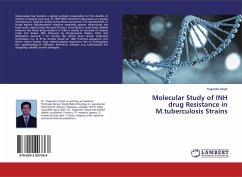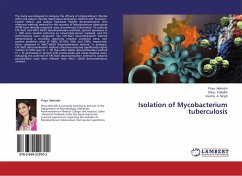Tuberculosis is a common and often deadly infectious disease caused by mycobacteria, in humans mainly Mycobacterium tuberculosis. It usually attacks the lungs (as pulmonary TB) but can also affect the central nervous system, the lymphatic system, the circulatory system, the genitourinary system, the gastrointestinal system, bones, joints, and even the skin. Seventy two strains of Mycobacterium tuberculosis isolated from 20 different governorates in Egypt. Mycobacteria were isolated from pathological samples at Tuberculosis Reference lab, ministry of health central labs, Cairo, Egypt. Strains were identified using colony morphology, biochemical tests and PCR based methods. Drug susceptibility tests were done using Nitrate Reduction Assay based method and results were compared to results obtained by BACTEC 460. RAPD fingerprinting were done on six Mycobacterium tuberculosis strains represents the antibiotics resistant groups. These Continuous efforts are being done to help in preventing disease prevalence by understanding rising of Multiple Drug Resistant strains and genetice diversity of TB strains.
Bitte wählen Sie Ihr Anliegen aus.
Rechnungen
Retourenschein anfordern
Bestellstatus
Storno








